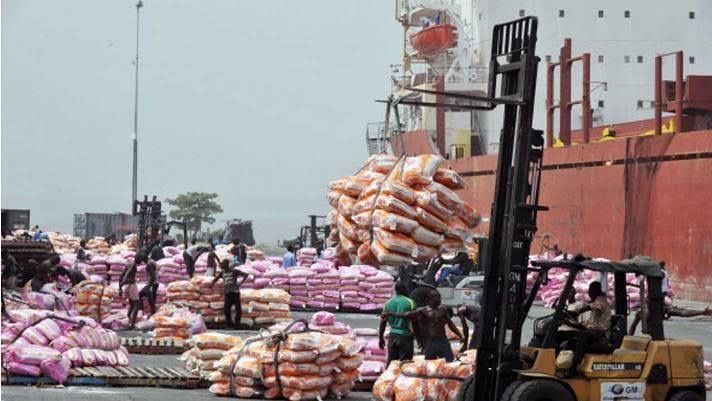Despite President Tinubu’s announcement in June that import duties and tariffs on basic food items would be suspended for a period of six months, Nigerian importers have reportedly been subject to these fees, contradicting the president’s directive.
The presidential directive was aimed at curbing price increases on food, raw materials, and inputs, including agricultural inputs such as fertilizers, pesticides, medicines, poultry feed, flour, and grains.
However, the importers claim the suspension has not been implemented and is in contradiction to a presidential order titled “Inflation Reduction and Price Stability (Fiscal Policy Measures, etc.) Order, 2024,” issued under the President’s constitutional powers.

Furthermore, the order, which takes effect from May 1, 2024, states that “authorized millers would now import paddy rice at zero duty and Value Added Tax (VAT) for a period of six months in the first instance in order to improve local supply and capacity utilization of rice millers.”
With regard to rice imports, it states that since the effectivity of the order, the following measures and reliefs will apply; “Value Added Tax, where applicable, are hereby suspended for the rest of the year 2024: basic food items and semi-processed staple food items such as noodles and pasta, raw material inputs for the manufacturing of food items, electricity, and public transportation, agricultural inputs and produce and pharmaceutical products for a period of six months.”

Contrary to the directive of the Presidential decree to expedite customs clearance and reduce processing time by at least 50%, the Importers Association of Nigeria (IMAN) reported that even two months after the issuance of the order, its members continue to impose customs duties on all listed food items, agricultural machinery, means of production and medicines. The failure of the Nigerian Customs Service to implement the provisions of the order has led to ongoing delays and non-payment of duties, which contradicts the government’s goal of containing inflation and stabilizing prices.
Aminu Dan-Iya, chairman of IMAN, Northern Nigeria Region, said, “Customs officials tell our members at entry points that they don’t have any written communication about the suspension. Therefore, nothing has changed, we’re paying duties as usual. As a matter of fact, people are outraged, asking to know why prices of food and other commodities keep skyrocketing despite the removal of taxes. The truth is that something is fundamentally wrong somewhere because we cannot fathom why such a crucial presidential order is yet to be implemented.”
Dan-Iya expressed optimism that the short-term tax suspension policy would help ease inflationary pressures and lead to a fall in the prices of grains and related products, thereby providing relief to consumers.
































